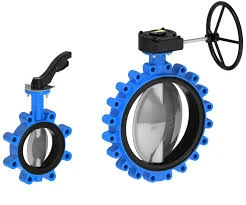10 月 . 31, 2024 04:18 Back to list
industrial check valve
Understanding Industrial Check Valves A Vital Component in Fluid Management
In various industrial applications, the control and management of fluid flow are essential for ensuring operational efficiency and safety. One of the critical components employed in these systems is the industrial check valve. This device plays a crucial role in maintaining the integrity of piping systems by allowing fluid to flow in one direction while preventing backflow.
What Is a Check Valve?
A check valve, often referred to as a non-return valve, is designed to automatically prevent the reverse flow of fluids in piping systems. The primary function of this valve is to maintain the desired direction of fluid movement, protecting equipment and preventing potential damage caused by backflow. Check valves are widely utilized in various industries, including chemical processing, water treatment, oil and gas, and HVAC systems.
Types of Check Valves
There are several types of check valves, each with unique operational mechanisms and suitable applications. The most common types include
1. Swing Check Valve This type features a swinging disc that opens when fluid flows in the desired direction and closes when backflow occurs. Swing check valves are ideal for larger pipe diameters but may require more space due to their design.
industrial check valve

2. Lift Check Valve Unlike the swing check valve, the lift check valve utilizes a disc that moves vertically. When fluid flows in the correct direction, the disc is pushed upward, and when backflow occurs, gravity pulls the disc down to seal the valve. This type is often used in applications involving higher pressure.
3. Ball Check Valve This design uses a spherical ball as the sealing mechanism. The ball sits in a concave seat and is lifted when fluid flows in the desired direction. Ball check valves are compact and effective for small pipe sizes.
4. Diaphragm Check Valve Using a flexible diaphragm, this valve opens and closes based on fluid pressure. It is particularly advantageous in applications where sediment or debris is a concern, as it is less likely to become clogged.
Importance in Industrial Systems
Industrial check valves are indispensable for ensuring the reliability and efficiency of fluid systems. They help to prevent costly downtime, protect pumps and compressors from damage, and maintain system pressure. Moreover, using check valves contributes to overall safety by preventing hazardous fluids from flowing backward.
In conclusion, industrial check valves are vital components that facilitate controlled fluid flow in various industrial settings. Their ability to prevent backflow significantly contributes to the reliability and efficiency of fluid systems. Understanding the different types and their applications can aid industries in selecting the right check valve for their specific needs, ultimately enhancing operational performance.
Share
-
Understanding the Differences Between Wafer Type Butterfly Valve and Lugged Butterfly ValveNewsOct.25,2024
-
The Efficiency of Wafer Type Butterfly Valve and Lugged Butterfly ValveNewsOct.25,2024
-
The Ultimate Guide to Industrial Swing Check Valve: Performance, Installation, and MaintenanceNewsOct.25,2024
-
Superior Performance with Industrial Swing Check Valve: The Essential Valve for Any SystemNewsOct.25,2024
-
Industrial Swing Check Valve: The Ideal Solution for Flow ControlNewsOct.25,2024
-
You Need to Know About Industrial Swing Check Valve: Functionality, Scope, and PerformanceNewsOct.25,2024